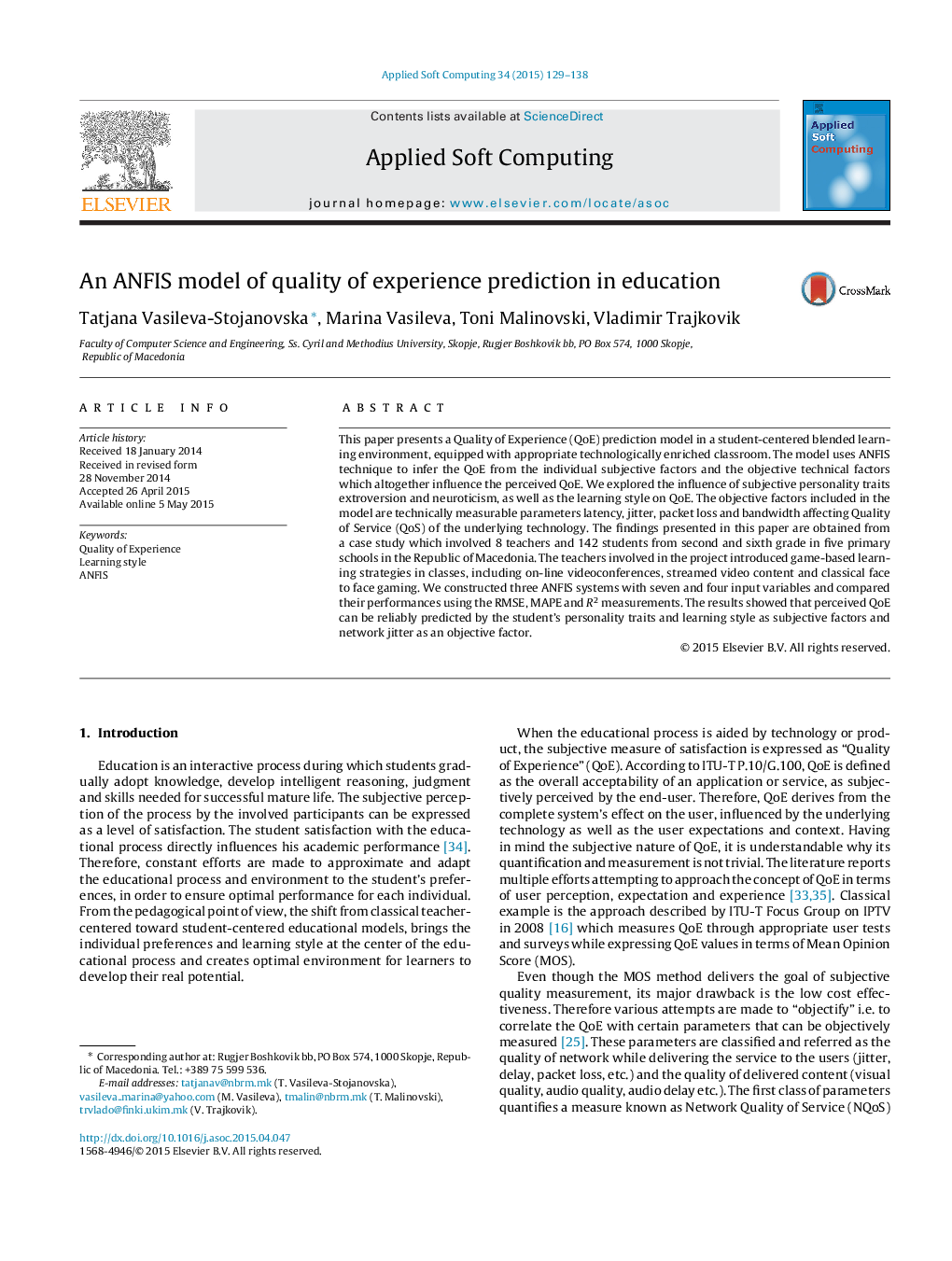| کد مقاله | کد نشریه | سال انتشار | مقاله انگلیسی | نسخه تمام متن |
|---|---|---|---|---|
| 494938 | 862810 | 2015 | 10 صفحه PDF | دانلود رایگان |

• The model uses ANFIS to predict the QoE in a blended educational environment.
• The paper explores subjective and objective techncal factors influencing QoE.
• Three ANFIS systems constructed using subtractive clustering and grid partitioning.
• The most influential factors on QoE are personality traits, learning style and jitter.
• The model produces lower RMSE than the corresponding linear regression model.
This paper presents a Quality of Experience (QoE) prediction model in a student-centered blended learning environment, equipped with appropriate technologically enriched classroom. The model uses ANFIS technique to infer the QoE from the individual subjective factors and the objective technical factors which altogether influence the perceived QoE. We explored the influence of subjective personality traits extroversion and neuroticism, as well as the learning style on QoE. The objective factors included in the model are technically measurable parameters latency, jitter, packet loss and bandwidth affecting Quality of Service (QoS) of the underlying technology. The findings presented in this paper are obtained from a case study which involved 8 teachers and 142 students from second and sixth grade in five primary schools in the Republic of Macedonia. The teachers involved in the project introduced game-based learning strategies in classes, including on-line videoconferences, streamed video content and classical face to face gaming. We constructed three ANFIS systems with seven and four input variables and compared their performances using the RMSE, MAPE and R2 measurements. The results showed that perceived QoE can be reliably predicted by the student's personality traits and learning style as subjective factors and network jitter as an objective factor.
Figure optionsDownload as PowerPoint slide
Journal: Applied Soft Computing - Volume 34, September 2015, Pages 129–138